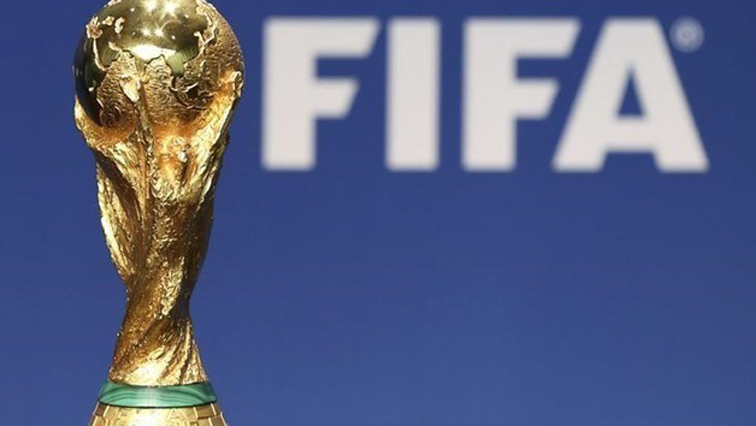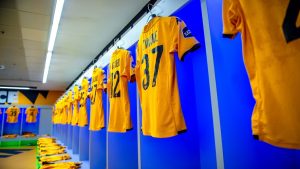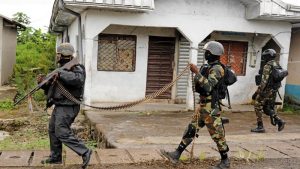Each World Cup year African football teams arrive with renewed hopes of making remarkable progress and breaking the vise grip that Europe and South America have had on this quadrennial tournament for nearly 100 years. Each time, that hope invariably implodes. That surely has to leave African teams with some critical questions.
The biggest is whether African teams – at the 2018 World Cup finals in Russia they were Egypt, Morocco, Tunisia, Nigeria and Senegal – are getting the best bank for the bucks they invest in their teams and coaches attending the competition. Some football fans may see football as recreational, while some politicians use it as a tool for national building. But football is without question a business: the players are professionals, the coaches are paid a king’s ransom, and governments and umbrella body, FIFA, dole out huge sums to support federations and their teams.
Taking part in the world cup involves both spending money, as well as earning money. Teams spend millions of dollars preparing for the month-long tournament. The funds go to paying coaches, many of whom are the highest paid professionals in the countries they serve. For example, a top government official in Egypt earns an estimated annual salary of $28,294 while Egypt’s current football manager Hector Cuper gets a reported $1.7 million annually. Egypt didn’t make it past the group stage in Russia.
Players also earn well. In some teams foreign based players – for example a Senegalese who plays for a European club – can earn more. And they’re camped in five star hotels and their programme is supported by huge budgets. In the case of Nigeria, the annual budget is $16.2 million. This is not a candy budget by any means.
On top of this, FIFA pays countries that qualify handsomely. And they longer they stay in the tournament, the more they get.
But is this money being managed wisely? Are the funds being invested in African teams being worth it? And are their wiser ways to manage the loot that comes from the game?
Big bucks
There is seriously good money in the World Cup – and we’re not even talking rights and sponsorships.
FIFA pays each team that make it to the World Cup $9.5million – $8million for taking part in the group stage and $1.5 million for tournament costs.
FIFA’s distribution of funds is based on how far each of the 32 teams is able to go in the tournament. Thus, by going further a team returns with more money. Just by progressing to the second round of 16 teams brings in an additional $4 million from FIFA. Getting into the quarterfinals brings a further $4 million to each team, while the third placed team gets $24 million and the fourth $22 million.
The winner of the 2018 World Cup final gets $38 million, with the runners-up paid $28 million. This is up from 2014 when winners Germany received $35 million and beaten finalists, Argentina, got $25 million.
On top of this teams can land seriously lucrative sponsorships. Take US soccer for example – it qualified for the 2014 tournament and received $49.7 million in sponsorships, television, licensing and royalties, according to their football federation’s tax form filing for 2015.
Options
One of the ways in which teams can make better use of the money that gets invested in national teams is by spending less. An easy way to cut costs would be for countries to decide to hire local managers and coaches since they cost quite a bit less than expatriates.
There’s a strong case to be made for this. Several local ones have done as well as the expatriates. Take the example of Nigeria. Four years ago at the World Cup tournament in Brazil Nigeria’s Stephen Keshi was paid less than his expatriate counterparts but took the Nigerian team to the second phase. It was a feat only a few expatriate Nigerian coaches have been able to achieve with the country’s team.
But there’s also a case to be made in investing big, particularly if a country decides that it wants to make it past the first round of the tournament. If the money that’s being spent on managers, in particular, isn’t getting them through to the second round, why keep them? Why not go for the very best managers and perhaps pay them a bit more. In addition, extra money can be put into creating a better working environment to increase the probability of going beyond the first phase.
Governments and football associations should go back to their spreadsheets and do some serious recalculating in preparation for the next World Cup in Qatar in 2020. Serious investment might ultimately be the path to a better payout and it may provide additional money to spend on sport development.
The recent spate of early World Cup exits might just signal that the best time to reevaluate the investment is now.
Chuka Onwumechili is Professor of Communications, Howard University






